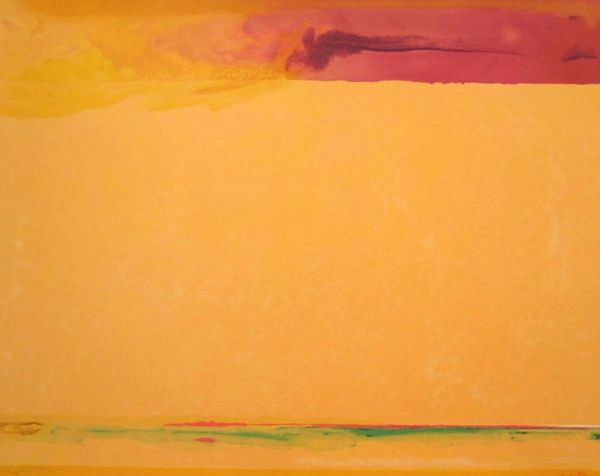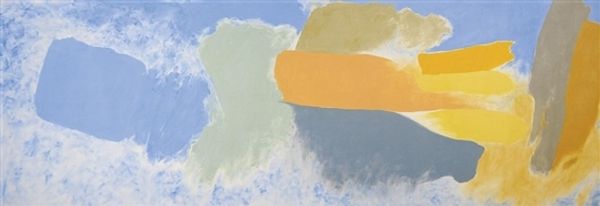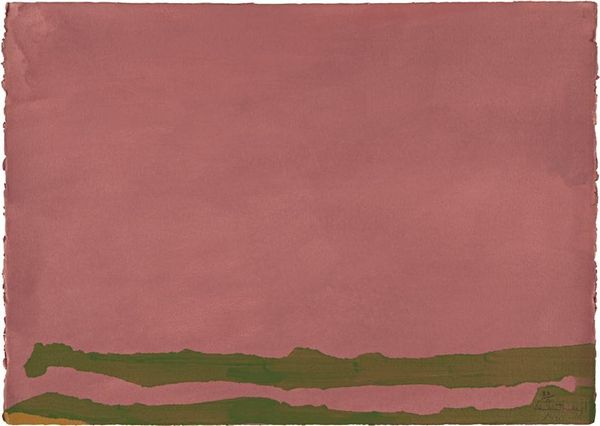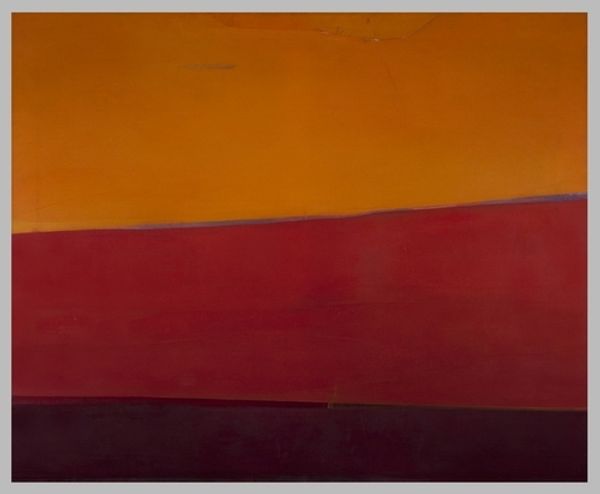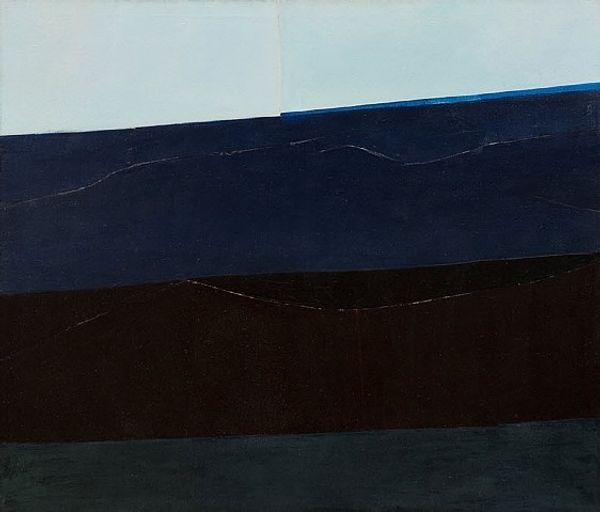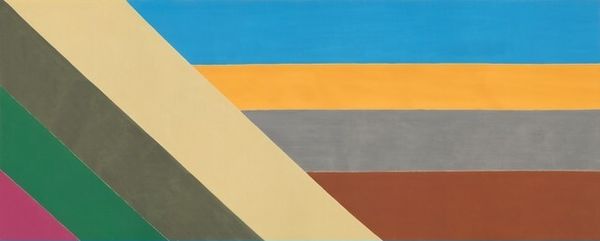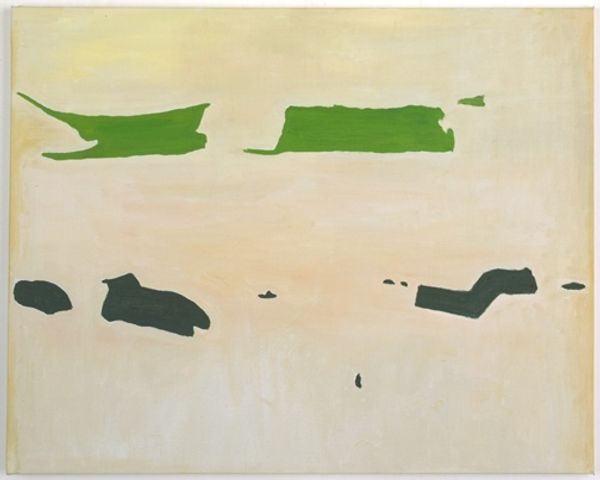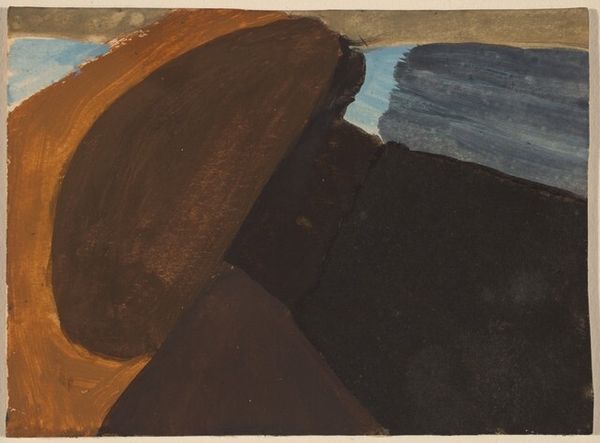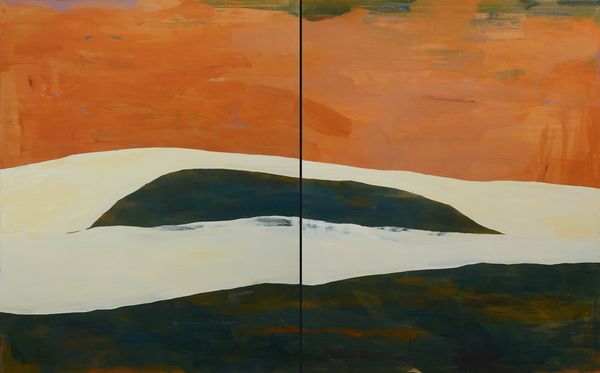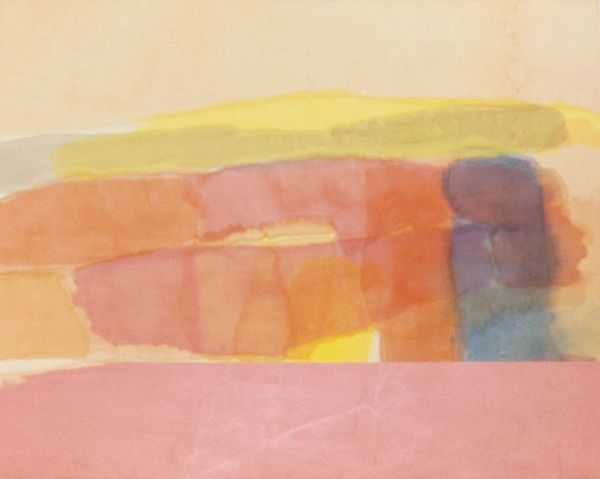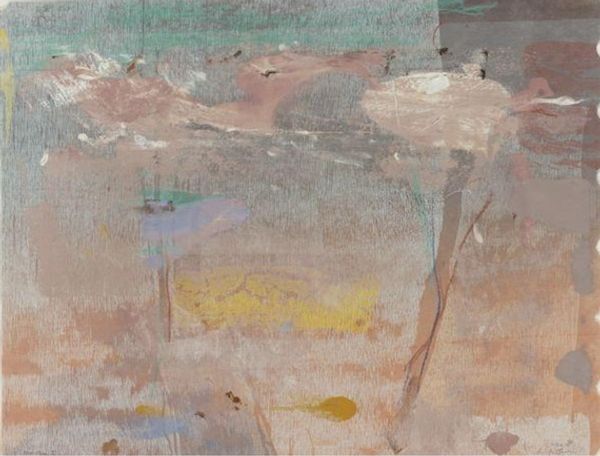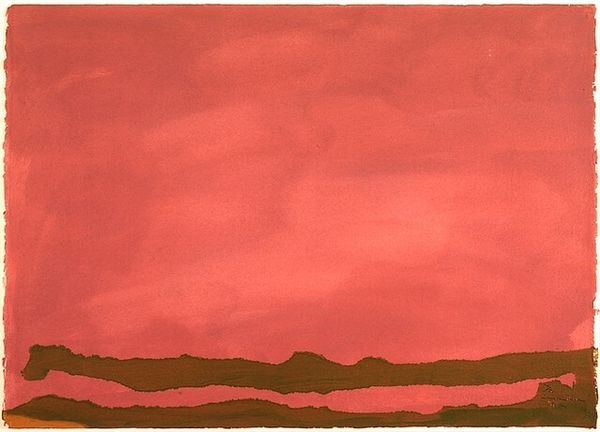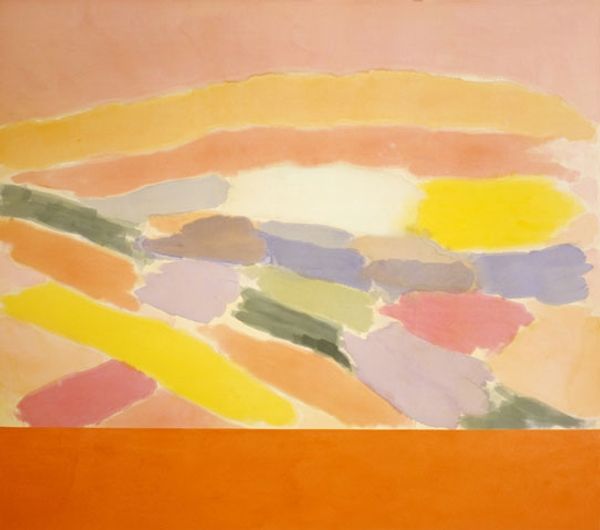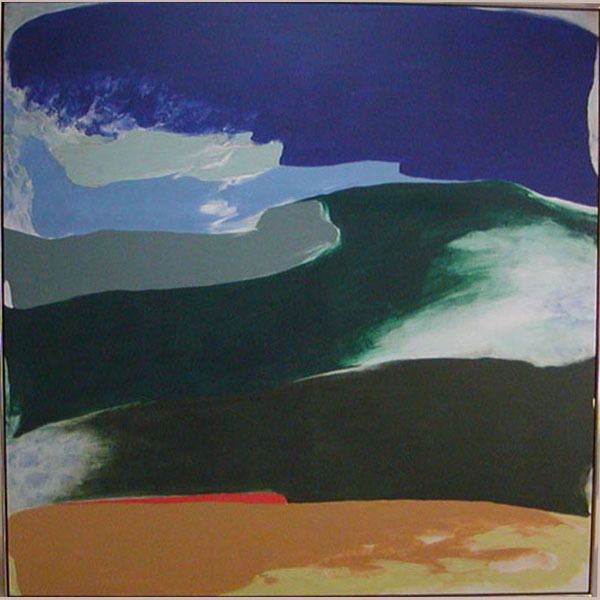
Copyright: Friedel Dzubas,Fair Use
Editor: Friedel Dzubas's "Barrier," painted in 1983 using acrylic on canvas, strikes me as a study in contrasts. The blocks of earthy browns and greens against the blues and whites evoke a sense of both groundedness and ethereality. What do you see in this piece? Curator: What immediately captures my attention is how this abstraction can be read as a commentary on social division. Consider the work's title: "Barrier." What kind of barrier are we looking at? Could these colour fields represent entrenched positions, perhaps along lines of race, class, or gender, especially during the social and political tensions of the 1980s? Editor: That's a powerful reading! I was just thinking about the colours and how they interact visually, but I hadn't considered a socio-political dimension. Curator: Exactly. Think about Colour Field painting in the context of its time. While seemingly abstract, artists were often reacting to or subverting dominant ideologies. Is Dzubas challenging us to confront these 'barriers,' these imposed separations within society? The painting certainly has an arresting horizontal emphasis and that could emphasize separation and blockage. Editor: So, by presenting these colour blocks, he might be encouraging us to analyze how societal structures create these divisions. But what about the lack of clear edges? Does that play into the interpretation? Curator: Precisely! The blurring could represent the instability of these barriers or the potential for their dissolution. Think of the period – discussions of identity and multiculturalism were intensifying. It's not simply about division but also about fluidity, about challenging the fixed categories we often rely on. Editor: That’s incredible. I had been viewing it purely from an aesthetic perspective, focusing on colour and form, but I see how it can provoke reflection on barriers between individuals and societies, which still hold weight today. Curator: It goes to show that abstraction isn't divorced from reality. It can be a potent language for engaging with pressing social concerns. By understanding the cultural moment and Dzubas’s positioning within it, we can unearth so much meaning.
Comments
No comments
Be the first to comment and join the conversation on the ultimate creative platform.
